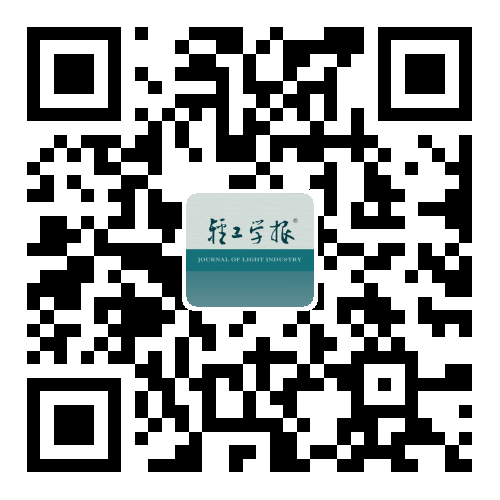安石榴苷对UVB诱导HaCaT细胞光损伤的保护作用
Protective effect of punicalagin on UVB-induced photodamage in HaCaT cells
-
摘要: 利用Caco-2细胞和HaCaT细胞建立肠-皮肤共培养体系,采用免疫荧光法评价安石榴苷对中波紫外线(UVB)诱导的光损伤产物环丁烷嘧啶二聚体(CPD)的抑制效果,通过实时荧光定量PCR、免疫沉淀、蛋白免疫印迹法探究安石榴苷对核苷酸切除修复(NER)途径相关基因转录和产物表达的影响。结果表明,安石榴苷能降低HaCaT细胞中的CPD水平,上调着色性干皮病基因组C(XPC)的mRNA转录水平,并以SIRT1基因依赖的方式降低XPA蛋白的乙酰化水平。这表明在Caco-2细胞与HaCaT细胞的肠-皮肤共培养体系中,安石榴苷可能通过激活NER途径相关的XPC/XPA蛋白促进UVB诱导的光损伤的修复,其作用依赖于SIRT1蛋白的去乙酰化活性。Abstract: In this study, the co-culture system of Caco-2 and HaCaT cells was established, and the inhibitory effect of punicalagin on cyclobutene pyrimidine dimers (CPD) which was one major type of UVB-induced DNA lesions was evaluated by immunofluorescence. Then the effects of punicalagin on transcription and expression levels of nucleotide excision repair (NER) related genes was further investigated by quantitative real-time PCR, immunoprecipitation and western-blotting. The results showed that punicalagin reduced CPD level in HaCaT cells, upregulated xeroderma pigmentosum group C (XPC) mRNA level and attenuated XPA acetylation in a SIRT1-dependent manner. This showed, punicalagin's efficacy against UVB-induced photodamage in the co-culture system of Caco-2 and HaCaT cells was probably activated by the NER related XPC/XPA which depended on the deacetylation activity of SIRT1.
-
Key words:
- punicalagin /
- ultraviolet B /
- co-culture /
- photodamage /
- nucleotide excision repair
-
-
[1]
MATSUMURA Y,ANANTHASWAMY H N.Toxic effects of ultraviolet radiation on the skin[J].Toxicology and Applied Pharmacology,2004,195(3):298-308.
-
[2]
HOLICK M F.Biological effects of sunlight,ultraviolet radiation,visible light,infrared radiation and vitamin D for health[J].Anticancer Research,2016,36(3):1345-1356.
-
[3]
SVOBODOVÁ A,PSOTOVÁ J,WALTEROVÁ D.Natural phenolics in the prevention of UV-induced skin damage:A review[J].Biomedical Papers,2003,147(2):137-145.
-
[4]
SKLAR L R,ALMUTAWA F,LIM H W,et al.Effects of ultraviolet radiation,visible light,and infrared radiation on erythema and pigmentation:A review[J].Photochemical & Photobiological Sciences,2012,12(1):54-64.
-
[5]
刘少英,孟祥璟,张祥奎,等.皮肤光老化机制及抗光老化药物[J].生理科学进展,2018,49(4):265-269.
-
[6]
WOOD R D.DNA repair in eukaryotes[J].Annual Review Biochemistry,1996,65:135-167.
-
[7]
FRIEDBERG E C.How nucleotide excision repair protects against cancer[J].Nature Reviews Cancer,2001,1(1):22-33.
-
[8]
PARK K,LEE J H.Protective effects of resveratrol on UVB-irradiated HaCaT cells through attenuation of the caspase pathway[J].Oncology Reports,2008,19(2):413-417.
-
[9]
ZHOU X Y,BURKE K E,WANG Y Y,et al.Dietary lycopene protects SKH-1 mice against ultraviolet B-induced photocarcinogenesis[J].Journal of Drugs in Dermatol,2019,18(12):1244-1254.
-
[10]
DARÉ R G,NAKAMURA C V,XIMENES V F,et al.Tannic acid, a promising anti-photoaging agent: Evidences of its antioxidant and anti-wrinkle potentials,and its ability to prevent photodamage and MMP-1 expression in L929 fibroblasts exposed to UVB[J].Free Radical Biology and Medicine,2020,160:342-355.
-
[11]
SAITO M,TANAKA M,MISAWA E,et al.Oral administration of aloe vera gel powder prevents UVB-induced decrease in skin elasticity via suppression of overexpression of MMPs in hairless mice[J].Bioscience,Biotechnology,and Biochemistry,2016,80(7):1416-1424.
-
[12]
VENUSOVA E,KOLESAROVA A,HORKY P,et al.Physiological and immune functions of punicalagin[J].Nutrients,2021,13(7):2150.
-
[13]
李影影.几种天然提取物在功能性化妆品中的应用研究[D].开封:河南大学,2016.
-
[14]
WANG X L,HERAUD S,THEPOT A,et al.The whitening properties of the mixture composed of pomegranate, osmanthus and olive and the protective effects against ultraviolet deleterious effects[J].Clinical,Cosmetic and Investigational Dermatology,2021,14:561-573.
-
[15]
杨明美,马月红,李锁,等.安石榴苷对中波紫外线诱导HaCaT细胞光损伤的预防作用研究[J].中华皮肤科杂志,2014,47(7):481-485.
-
[16]
朱姗,赵志月,王子静,等.皮肤老化分子机制及中药防治皮肤老化研究进展[J].天津中医药大学学报,2021,40(4):431-439.
-
[17]
ZAHIN M,AHMAD I,GUPTA R C,et al.Punicalagin and ellagic acid demonstrate antimutagenic activity and inhibition of benzo[a]pyrene induced DNA adducts[J].BioMed Research International,2014,2014:1-10.
-
[18]
ALVES-FERNANDES D K,JASIULIONIS M G.The role of SIRT1 on DNA damage response and epigenetic alterations in cancer[J].International Journal of Molecular Sciences,2019,20(13):3153.
-
[19]
CHONG Z,MATSUO H,ONOUE S,et al.Identification of polyphenols that repair the ultraviolet-B-induced DNA damage via SIRT1-dependent XPC/XPA activation[J].Journal of Functional Foods,2019,54:119-127.
-
[20]
UDONO M,KADOOKA K,YAMASHITA S,et al.Quantitative analysis of cellular senescence phenotypes using an imaging cytometer[J].Methods,2012,56(3):383-388.
-
[21]
余自成,高瑜,田薇薇,等.肠道转运Caco-2细胞单层模型的建立及验证评价[J].中国临床药学杂志,2012,21(4):218-221.
-
[22]
SUN H D,CHOW E C,LIU S J,et al.The Caco-2 cell monolayer:Usefulness and limitations[J].Expert Opinion on Drug Metabolism & Toxicology,2008,4(4):395-411.
-
[23]
IACOMINO G,DI STASIO L,FIERRO O,et al.Protective effects of ID331 triticum monococcum gliadin on in vitro models of the intestinal epithelium[J].Food Chemistry,2016,212:537-542.
-
[24]
YOU Y H,LEE D H,YOON J H,et al.Cyclobutane pyrimidine dimers are responsible for the vast majority of mutations induced by UVB irradiation in mammalian cells[J].Journal of Biological Chemistry,2001,276(48):44688-44694.
-
[25]
DAKUP P,GADDAMEEDHI S.Impact of the circadian clock on UV-induced DNA damage response and photocarcinogenesis[J].Photochemistry and Photobiology,2017,93(1):296-303.
-
[26]
YOUNG A R,CHADWICK C A,HARRISON G I,et al.The in situ repair kinetics of epidermal thymine dimers and 6-4 photoproducts in human skin types Ⅰ and Ⅱ[J].Journal of Investigative Dermatology,1996,106(6):1307-1313.
-
[27]
AFAQ F,ZAID M A,KHAN N,et al.Protective effect of pomegranate-derived products on UVB-mediated damage in human reconstituted skin[J].Experimental Dermatology,2009,18(6):553-561.
-
[28]
CAO C,LU S,KIVLIN R,et al.SIRT1 confers protection against UVB- and H2O2- induced cell death via modulation of p53 and JNK in cultured skin keratinocytes[J].Journal of Cellular and Molecular Medicine,2009,13(9b):3632-3643.
-
[29]
MING M,SHEA C R,GUO X M,et al.Regulation of global genome nucleotide excision repair by SIRT1 through xeroderma pigmentosum C[J].Proceedings of the National Academy of Sciences,2010,107(52):22623-22628.
-
[30]
SHAH P,HE Y Y.Molecular regulation of UV-induced DNA repair[J].Photochemistry and Photobiology, 2015,91(2): 254-264.
-
[31]
BUDDEN T,BOWDEN N A.The role of altered nucleotide excision repair and UVB-induced DNA damage in melanomagenesis[J].International Journal of Molecular Sciences,2013,14(1):1132-1151.
-
[32]
KUSAKABE M,ONISHI Y,TADA H,et al.Mechanism and regulation of DNA damage recognition in nucleotide excision repair[J].Genes and Environment,2019,41(1):2-7.
-
[33]
LANGIE S A S,KNAAPEN A M,HOUBEN J M J,et al.The role of glutathione in the regulation of nucleotide excision repair during oxidative stress[J].Toxicology Letters,2007,168(3):302-309.
-
[34]
CAI B X,LUO D,LIN X F,et al.Compound K suppresses ultraviolet radiation-induced apoptosis by inducing DNA repair in human keratinocytes[J].Archives of Pharmacal Research,2008,31(11):1483-1488.
-
[35]
BORSZÉKOVÁ PULZOVÁ L,WARD T A,CHOVANEC M.XPA:DNA repair protein of significant clinical importance[J].International Journal of Molecular Sciences,2020,21(6):2182.
-
[36]
FAN W,LUO J Y.SIRT1 regulates UV-induced DNA repair through deacetylating XPA[J].Molecular Cell,2010,39(2):247-258.
-
[37]
VOLKER M,MONE M J,KARMAKAR P,et al.Sequential assembly of the nucleotide excision repair factors in vivo[J].Molecular Cell,2001,8(1):213-224.
-
[1]
-

 点击查看大图
点击查看大图
计量
- PDF下载量: 11
- 文章访问数: 1776
- 引证文献数: 0



 下载:
下载:
